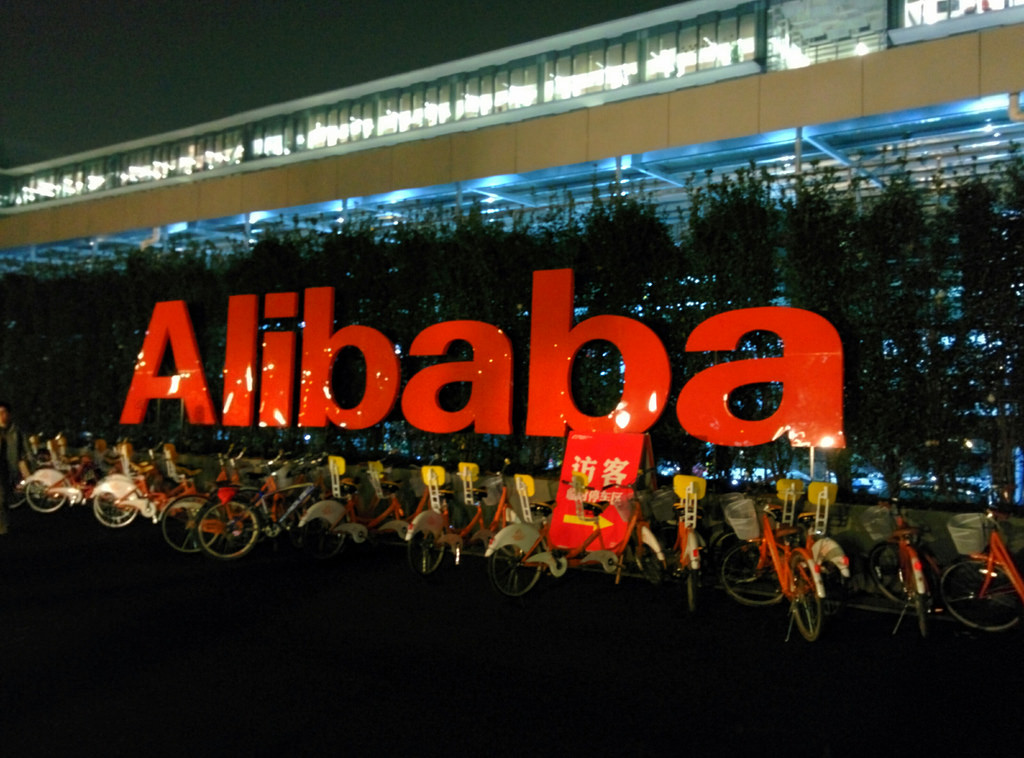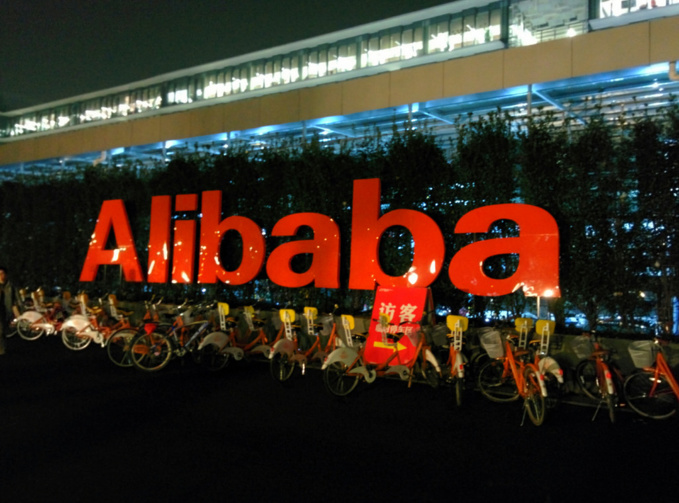Before the IPO, many Westerners who did not follow the e-commerce world had never heard of Alibaba. And those who knew about it, basically were only aware of its partnership with the ill-fated Yahoo, which owns a significant stake in Alibaba. In general, the coverage of Alibaba's history in the US was vaguely indulgent. The incredible growth and impressive size of the company was explained as an accidental consequence of the scale and closeness of the Chinese market, as well as state protectionism.
In 2010, the New York Times published a typical article. Reporter David Barboza described Alibaba as one of several "fast-growing local companies that are making huge profits" through online trading. But his predictions for the company’s future were rather gloomy: "According to experts, the Chinese Internet market will increasingly resemble a profitable and well-fenced market. This internal success... could trouble affluent global brands." Barboza cited one analyst who predicted: "When Chinese companies go out of the country, they will find that they do not understand their competitors as good as in China."
By the summer of 2014, just a few weeks after the debut of Alibaba on the US stock exchange, American business analysts were singing quite different songs. Brad Stone of Businessweek warned of the "Alibaba offensive" and explained that the Chinese giant unexpectedly turned out to be the first in history to be a strong threat to US domination on the Internet. Stone described how Alibaba defeated eBay in China, becoming the most important source of Chinese products for businesses around the world, successfully opened the Chinese consumer market to international companies such as Nike and Apple and quickly developed its infrastructure by challenging Amazon and eBay at their home field - in the USA. Stone concluded: "Chinese Internet entrepreneurs intend to compete - and win - in the race for the creation of the first global online market."
Such a rapid ascent from comparative uncertainty to global leadership would be impossible in most traditional industries.
It took decades for American steelmakers and manufacturers of heavy engineering to surpass competitors in Britain and Germany. After the Second World War, the young enterprises of Japan took three decades to become leaders in the field of production of cars and electronics along with the American stars of the industry. Alibaba gained the potential that gives a chance to outrun eBay and Amazon in a decade or so after entering the competition for dominance in the market.
Just like in most business stories, the company’s success was influenced by many factors, including the strategic genius of Chairman Jack Ma, the explosive growth of the Chinese middle class, and, of course, the government imposing restrictions on the operations of foreign companies in China. The latter provided Alibaba with a space for growth free from the pressure of American competitors. Basically the speed of Alibaba ascent can be explained by a new platform competition.
Alibaba.com, one of the five major companies operating under the corporate umbrella, allows organizations from around the world to purchase products and components from Chinese manufacturers. For example, one Californian cosmetics maker is amazed at the capabilities of Alibaba.com: "I have access to hundreds of suppliers." In turn, Tmall, another subsidiary of Alibaba, sells foreign goods to millions of Chinese consumers, bypassing the traditional state system of brokers, which slows imports and imposes additional paperwork and costs. One American shoe seller says that Alibaba "has absorbed the entire average retail level". The result is an almost uninterrupted unlimited trade, which connects sellers and millions of consumers.
Moreover, Alibaba is practically using another important competitive power of platforms: the ability to seamlessly absorb the resources and connections of external partners, strengthening its activities and capabilities. For example, to expand the supply of American goods to Chinese consumers, Alibaba has partnered with ShopRunner, a US-based logistics company in which Alibaba owns a share. ShopRunner already has agreements with US brands, including Neiman Marcus and Toys'R'Us, which allows it to supply American products to customers in China in two days.
Conquering the World
Once in the 19th and early 20th century, Sears and Roebuck took decades and huge costs for retail, warehouses, testing, printing, delivery, maintenance and office systems to become American sellers. Today, a platform business, such as Alibaba, can take advantage of the capabilities of dozens of existing organizations and quickly become a contender for the world merchant title.
Based on “Platform Revolution. How Networked Markets Are Transforming the Economy--And How to Make Them Work for You” by Sangeet Paul Choudary, Marshall W. Van Alstyne и Geoffrey G. Parker
In 2010, the New York Times published a typical article. Reporter David Barboza described Alibaba as one of several "fast-growing local companies that are making huge profits" through online trading. But his predictions for the company’s future were rather gloomy: "According to experts, the Chinese Internet market will increasingly resemble a profitable and well-fenced market. This internal success... could trouble affluent global brands." Barboza cited one analyst who predicted: "When Chinese companies go out of the country, they will find that they do not understand their competitors as good as in China."
By the summer of 2014, just a few weeks after the debut of Alibaba on the US stock exchange, American business analysts were singing quite different songs. Brad Stone of Businessweek warned of the "Alibaba offensive" and explained that the Chinese giant unexpectedly turned out to be the first in history to be a strong threat to US domination on the Internet. Stone described how Alibaba defeated eBay in China, becoming the most important source of Chinese products for businesses around the world, successfully opened the Chinese consumer market to international companies such as Nike and Apple and quickly developed its infrastructure by challenging Amazon and eBay at their home field - in the USA. Stone concluded: "Chinese Internet entrepreneurs intend to compete - and win - in the race for the creation of the first global online market."
Such a rapid ascent from comparative uncertainty to global leadership would be impossible in most traditional industries.
It took decades for American steelmakers and manufacturers of heavy engineering to surpass competitors in Britain and Germany. After the Second World War, the young enterprises of Japan took three decades to become leaders in the field of production of cars and electronics along with the American stars of the industry. Alibaba gained the potential that gives a chance to outrun eBay and Amazon in a decade or so after entering the competition for dominance in the market.
Just like in most business stories, the company’s success was influenced by many factors, including the strategic genius of Chairman Jack Ma, the explosive growth of the Chinese middle class, and, of course, the government imposing restrictions on the operations of foreign companies in China. The latter provided Alibaba with a space for growth free from the pressure of American competitors. Basically the speed of Alibaba ascent can be explained by a new platform competition.
Alibaba.com, one of the five major companies operating under the corporate umbrella, allows organizations from around the world to purchase products and components from Chinese manufacturers. For example, one Californian cosmetics maker is amazed at the capabilities of Alibaba.com: "I have access to hundreds of suppliers." In turn, Tmall, another subsidiary of Alibaba, sells foreign goods to millions of Chinese consumers, bypassing the traditional state system of brokers, which slows imports and imposes additional paperwork and costs. One American shoe seller says that Alibaba "has absorbed the entire average retail level". The result is an almost uninterrupted unlimited trade, which connects sellers and millions of consumers.
Moreover, Alibaba is practically using another important competitive power of platforms: the ability to seamlessly absorb the resources and connections of external partners, strengthening its activities and capabilities. For example, to expand the supply of American goods to Chinese consumers, Alibaba has partnered with ShopRunner, a US-based logistics company in which Alibaba owns a share. ShopRunner already has agreements with US brands, including Neiman Marcus and Toys'R'Us, which allows it to supply American products to customers in China in two days.
Conquering the World
Once in the 19th and early 20th century, Sears and Roebuck took decades and huge costs for retail, warehouses, testing, printing, delivery, maintenance and office systems to become American sellers. Today, a platform business, such as Alibaba, can take advantage of the capabilities of dozens of existing organizations and quickly become a contender for the world merchant title.
Based on “Platform Revolution. How Networked Markets Are Transforming the Economy--And How to Make Them Work for You” by Sangeet Paul Choudary, Marshall W. Van Alstyne и Geoffrey G. Parker



















